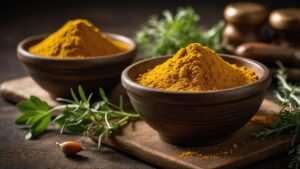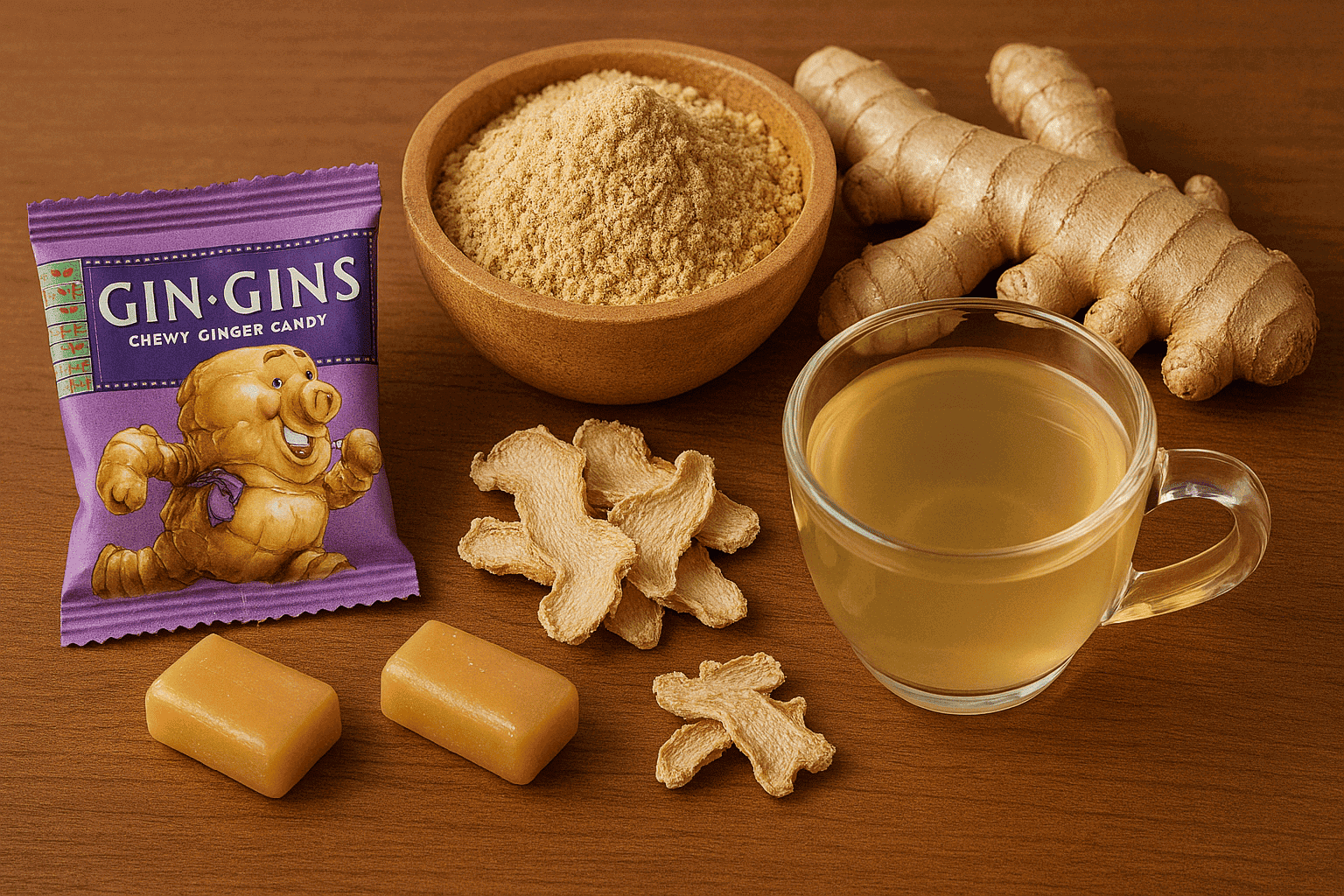Digestive discomfort is a common issue that affects millions of people worldwide. From bloating and gas to indigestion and nausea, various digestive problems can disrupt daily life and cause significant discomfort. While over-the-counter medications are available, many people prefer natural remedies that are gentle on the body. One effective way to soothe digestive discomfort is through the use of herbal teas, which have been used for centuries in traditional medicine to promote digestive health.
Herbal teas are rich in natural compounds that can help ease various digestive issues. They offer a range of benefits, from relaxing the digestive tract muscles to reducing inflammation and balancing gut bacteria. In this article, we will explore 10 herbal teas that are particularly effective in soothing digestive discomfort. These teas not only provide relief but also contribute to overall wellness, making them a valuable addition to your daily routine. For more natural remedies for digestive health, you can check out our comprehensive guide on Top 100 Natural Remedies for Digestive Health.
Peppermint Tea

1.1 Benefits of Peppermint Tea for Digestion
Peppermint tea is one of the most popular herbal teas for digestive health. It contains menthol, a compound known for its ability to relax the muscles of the digestive tract, which helps alleviate symptoms such as bloating, gas, and cramps. Peppermint tea also has antispasmodic properties, making it an effective remedy for irritable bowel syndrome (IBS).
1.2 How to Prepare Peppermint Tea
To prepare peppermint tea, steep one teaspoon of dried peppermint leaves in a cup of boiling water for 5-10 minutes. Strain the leaves and enjoy the tea warm. For added flavor, you can mix peppermint with other digestive-friendly herbs like chamomile or ginger.
1.3 When to Drink Peppermint Tea
Peppermint tea can be consumed after meals to help with digestion or whenever you experience digestive discomfort. It is also a great option before bedtime, as it helps relax the body and promote restful sleep.
Ginger Tea

2.1 Benefits of Ginger Tea for Digestion
Ginger tea is renowned for its anti-inflammatory and antioxidant properties. It stimulates saliva, bile, and gastric enzymes, which are essential for the breakdown of food and efficient digestion. Ginger is particularly effective in treating nausea and vomiting, making it a popular choice for those suffering from morning sickness or motion sickness.
2.2 How to Prepare Ginger Tea
To make ginger tea, slice a small piece of fresh ginger root (about 1-2 inches) and add it to a pot of boiling water. Let it simmer for 10-15 minutes, then strain the ginger pieces. You can enhance the flavor with a teaspoon of honey or a squeeze of lemon.
2.3 When to Drink Ginger Tea
Ginger tea is most effective when consumed before meals to stimulate digestion. It can also be sipped throughout the day to relieve nausea and improve digestive health.
Chamomile Tea

3.1 Benefits of Chamomile Tea for Digestion
Chamomile tea is known for its calming effects on both the mind and the digestive system. It helps reduce inflammation in the digestive tract and is effective in relieving symptoms of indigestion, such as heartburn and acid reflux. Chamomile is also a mild sedative, which can help reduce stress-related digestive issues.
3.2 How to Prepare Chamomile Tea
To prepare chamomile tea, steep one tablespoon of dried chamomile flowers in a cup of boiling water for 5-10 minutes. Strain the flowers and enjoy. Chamomile tea pairs well with a bit of honey or a slice of apple for added sweetness.
3.3 When to Drink Chamomile Tea
Chamomile tea is best consumed in the evening, as its calming effects can help prepare your body for sleep. However, it can also be enjoyed after meals to help soothe the digestive tract.
Fennel Tea

4.1 Benefits of Fennel Tea for Digestion
Fennel tea is a traditional remedy for bloating and gas. The seeds of the fennel plant contain volatile oils that stimulate the production of digestive enzymes, helping to break down food more efficiently. Fennel tea also has antispasmodic properties, which can help reduce cramping and discomfort.
4.2 How to Prepare Fennel Tea
To make fennel tea, crush one teaspoon of fennel seeds and add them to a cup of boiling water. Let the seeds steep for 10 minutes, then strain. Fennel tea has a naturally sweet, licorice-like flavor, but you can add honey for extra sweetness if desired.
4.3 When to Drink Fennel Tea
Fennel tea is particularly effective after meals, especially if you are prone to bloating or gas. It can also be consumed throughout the day as a gentle digestive aid.
Licorice Root Tea

5.1 Benefits of Licorice Root Tea for Digestion
Licorice root tea is beneficial for soothing the stomach lining and reducing symptoms of acid reflux and indigestion. It has natural anti-inflammatory properties and is often used to treat gastritis and ulcers. Licorice also promotes the production of mucus, which can protect the stomach lining from acidic irritation.
5.2 How to Prepare Licorice Root Tea
To prepare licorice root tea, steep one teaspoon of dried licorice root in a cup of boiling water for 10-15 minutes. Strain the root and enjoy the tea warm. Due to its naturally sweet flavor, licorice root tea does not require additional sweeteners.
5.3 When to Drink Licorice Root Tea
Licorice root tea is best consumed after meals to soothe the digestive tract and prevent acid reflux. However, it is important to note that licorice should be consumed in moderation, as excessive intake can lead to side effects such as high blood pressure.
Other Beneficial Herbal Teas for Digestive Health
6.1 Lemon Balm Tea

Lemon balm tea is known for its calming effects on the digestive system. It can help relieve bloating, gas, and indigestion, especially when these symptoms are related to stress. Lemon balm is also effective in reducing nausea.
6.2 Dandelion Tea
Dandelion tea has natural diuretic properties that help the body eliminate excess water, reducing bloating. It also stimulates bile production, which aids in the digestion of fats and promotes liver health.
6.3 Marshmallow Root Tea
Marshmallow root tea is a soothing remedy for the digestive tract. It contains mucilage, a gel-like substance that coats the lining of the stomach and intestines, helping to reduce irritation and inflammation. This tea is particularly helpful for individuals with gastritis or ulcers.
6.4 Holy Basil (Tulsi) Tea
Holy basil tea, also known as tulsi tea, is an adaptogen that helps the body manage stress. It has anti-inflammatory properties that can soothe the digestive tract and reduce symptoms like bloating and indigestion.
6.5 Rooibos Tea
Rooibos tea is a caffeine-free herbal tea rich in antioxidants. It helps to reduce inflammation and can ease stomach cramps and indigestion. Rooibos is also known to support overall gut health by promoting a balanced gut microbiome.
Conclusion
Herbal teas are a natural and effective way to soothe digestive discomfort and promote overall digestive health. From the calming effects of chamomile to the anti-inflammatory properties of ginger, these teas offer a variety of benefits that can help alleviate common digestive issues like bloating, gas, and indigestion. Incorporating these herbal teas into your daily routine can provide relief and enhance your digestive wellness. For a broader range of natural remedies and tips, check out our articles on Top 100 Natural Remedies for Digestive Health and Natural Ways to Boost Your Immune System: Proven Foods, Supplements, and Lifestyle Changes. Remember to consult with a healthcare professional before starting any new remedy, especially if you have underlying health conditions. With the right herbal teas and a commitment to natural health, you can achieve optimal digestive comfort and well-being.









